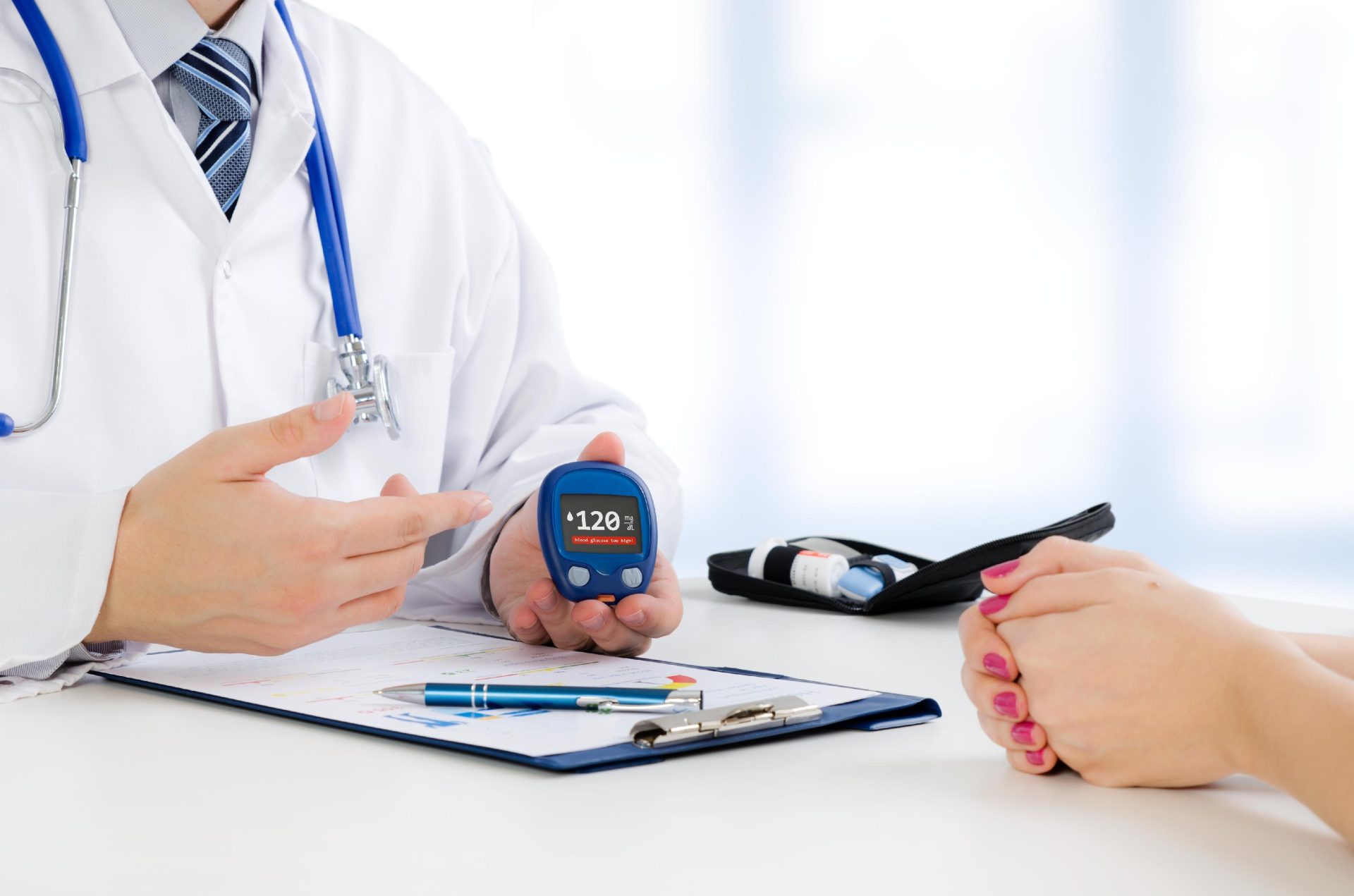Symptoms of Diabetes
The manifestation of diabetes symptoms correlates with the level of elevated blood sugar. Some individuals, especially those with prediabetes, gestational diabetes, or type 2 diabetes, might not experience noticeable symptoms. In contrast, symptoms of type 1 diabetes tend to emerge rapidly and exhibit greater severity.
The symptoms associated with both type 1 and type 2 diabetes include:
- Increased Thirst: Experiencing heightened thirst beyond the usual level.
- Frequent Urination: Having a need to urinate frequently.
- Unintentional Weight Loss: Losing weight without deliberate efforts.
- Presence of Urinary Ketones: Detection of ketones in the urine, which are by-products resulting from the breakdown of muscle and fat due to insufficient available insulin.
- Fatigue and Weakness: Feeling excessively tired and lacking strength.
- Mood Changes: Experiencing irritability or other mood fluctuations.
- Blurred Vision: Encountering blurred or unclear vision.
- Slow-Healing Wounds: Noticing wounds that take a prolonged time to heal.
- Susceptibility to Infections: Being prone to various infections, including those affecting the gums, skin, and vaginal area.
Type 1 diabetes can initiate at any age, although it frequently emerges during childhood or adolescence. On the other hand, type 2 diabetes, which is more prevalent, can manifest across all age groups. While it is more commonly diagnosed in individuals over 40, the incidence of type 2 diabetes in children is on the rise.
Causes of Diabetes
Type 1 Diabetes: In the case of type 1 diabetes, the body’s ability to produce insulin is compromised. This condition arises due to an autoimmune response that targets and destroys the insulin-producing cells within the pancreas. The likelihood of developing type 1 diabetes is heightened if an immediate family member, such as a parent or sibling, has also been diagnosed with it.
Type 2 Diabetes: Upon consuming food, the body converts a major portion of the ingested nutrients into glucose, a form of sugar. The hormone insulin facilitates the entry of this glucose into various cells throughout the body, providing energy. The pancreas is responsible for producing insulin. In individuals with type 2 diabetes, either the pancreas doesn’t generate sufficient insulin or the body’s cells exhibit resistance to insulin’s effects, a phenomenon known as insulin resistance. Consequently, glucose accumulates in the bloodstream instead of being absorbed by the cells. This excess blood glucose can lead to severe health complications, affecting blood vessels, nerves, heart, eyes, and kidneys.
Several risk factors contribute to the development of type 2 diabetes:
Weight: Obesity stands as the predominant risk factor for type 2 diabetes. Increased body weight corresponds to heightened insulin resistance. Consultation with a healthcare professional can help determine whether an individual is overweight. Adhering to a nutritious, low-fat diet coupled with regular physical activity can facilitate gradual and sustainable weight loss.
Age: The risk of type 2 diabetes escalates with age, especially beyond 45 years. Although age cannot be altered, other modifiable risk factors can be addressed to mitigate the overall risk.
Family History: Having a close family member, such as a parent, sibling, or mother, with diabetes amplifies the individual’s susceptibility to the condition.
Pregnancy: Gestational diabetes emerges exclusively during pregnancy. While it typically subsides post-delivery, roughly half of women who experience gestational diabetes eventually develop type 2 diabetes within 15 years. Additionally, women giving birth to babies weighing 9 pounds or more are at an elevated risk of developing type 2 diabetes later in life.
Polycystic Ovary Syndrome (PCOS): PCOS stems from hormonal imbalances in women, leading to the formation of cysts on the ovaries. Women afflicted with PCOS face an augmented risk of type 2 diabetes.
Smoking and Alcohol Consumption: Engaging in alcohol consumption and tobacco use may heighten the risk of developing type 2 diabetes.

